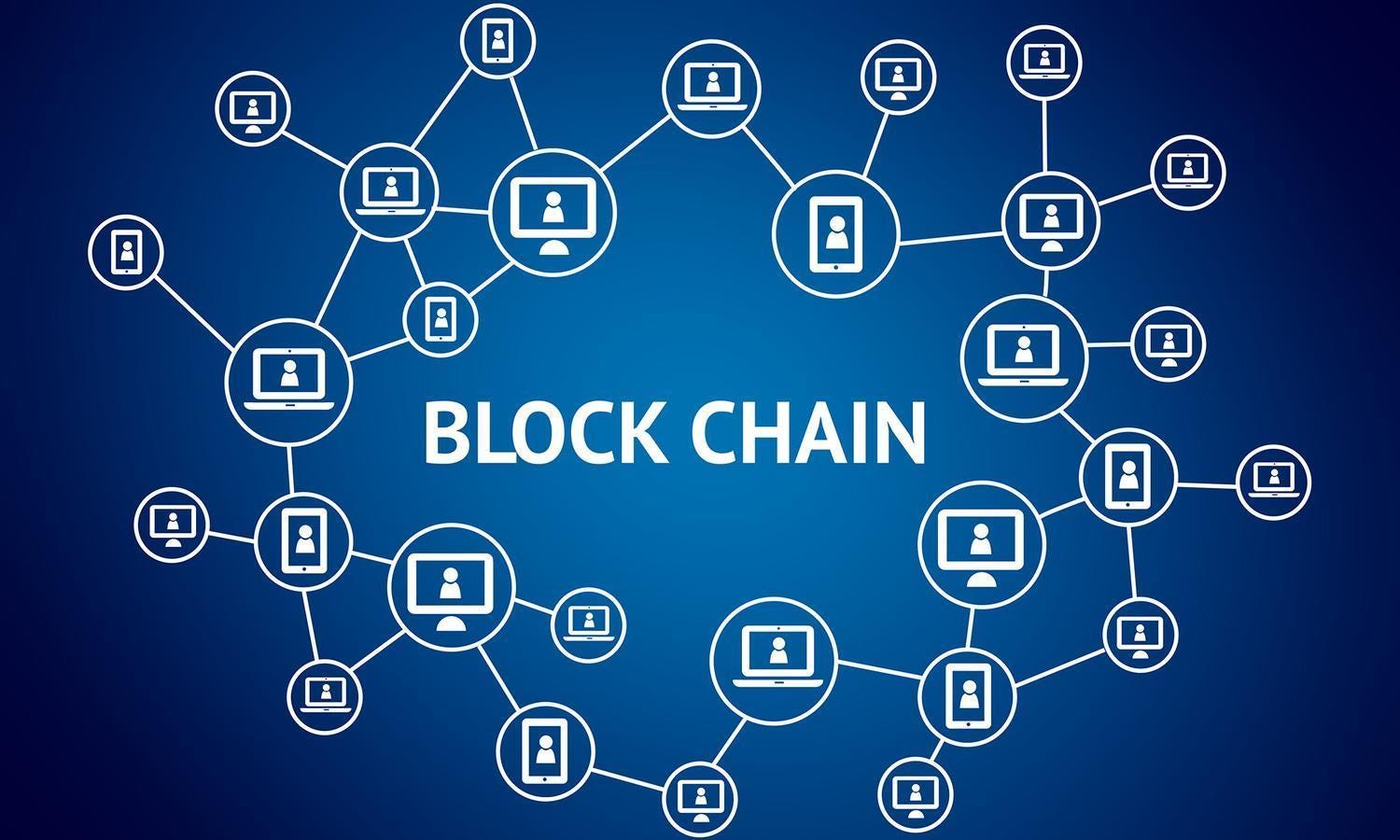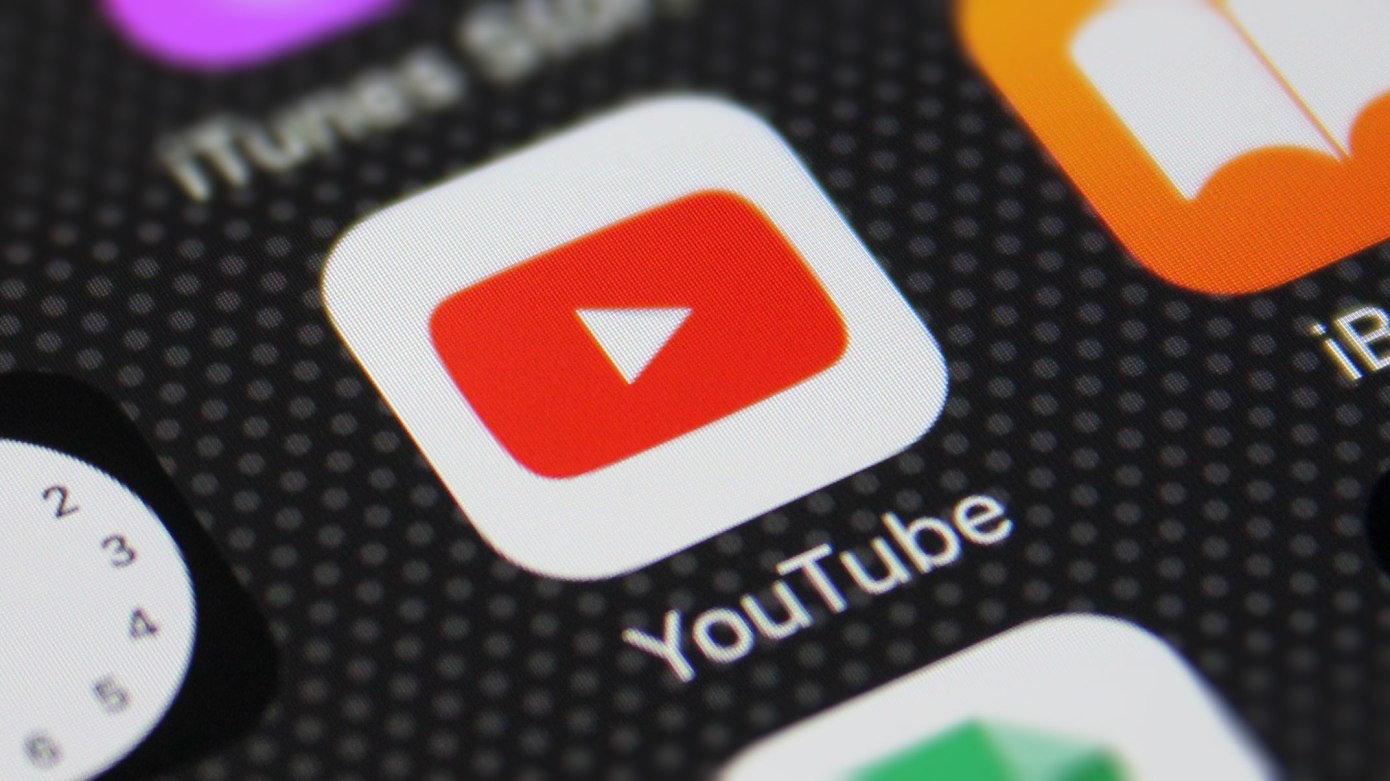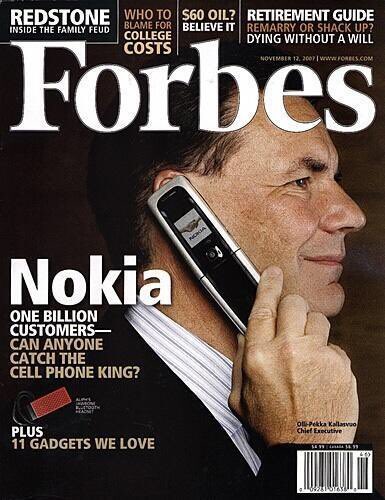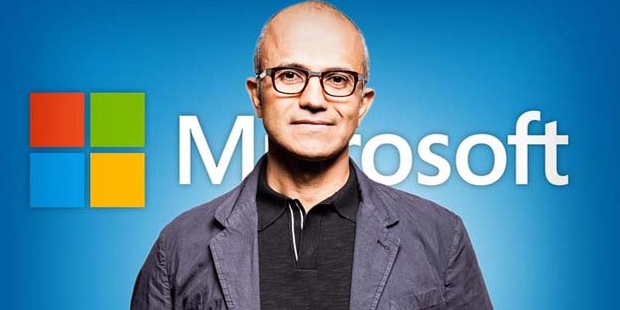The price. Get it below 30K.
— Paramendra Kumar Bhagat (@paramendra) November 9, 2018
Friday, November 09, 2018
Thursday, October 25, 2018
Tesla, Uber, Lyft, Waymo, Hyperloop, Bullet, Boring
Self driving cars turn small cars into buses, in that you get a public transport ring. You take the driver out, and the ride is cheap. It is bus rate, cheaper actually. This is not just a revolution in engineering, it also is a revolution in ownership. New financial instruments have to be thought up. Instead of buying a house to rent, maybe you want to buy a car to rent.
Transport is point A to point B. It makes sense for the Hyperloop pod to talk to the Tesla self-driving car. You should be able to pick point A, and your point B, and let them crunch the details. You don't get off the pod and call a cab. The cab is already waiting for you and two other people. You will be dropped off at your point B.
Tesla becomes more viable when it starts doing better numbers, which means mass production. The more you produce the cheaper you can go, wider your horizons. Tesla today is a PC in the mid-90s. The price will look expensive in five years.
China's bullet trains pack a punch. But Musk takes point A to point B to a whole new level. There is even vertical take off. And that is 30 minutes from any point to any other point on earth. Vertical also goes in another direction. There is no limit to how many lanes you can have underground. Solving LA traffic? That entrepreneur deserves a gold medal. LA traffic is a living, breathing nightmare.
Tesla 'obviously' plans to take on Uber and Lyft, says CEO Elon Musk
Tuesday, October 16, 2018
The Top Transit System In The World Suffers For Lack Of Tech
New York’s subways and buses are in crisis. As it copes with cascading delays, traffic congestion, and declines in ridership, the Metropolitan Transportation Authority (MTA) is seeking salvation from an unlikely source: the tech sector. On Wednesday, the MTA announced the creation of “the nation’s first Transit Tech Lab,” an accelerator designed to vet new high-tech products designed to help improve the nation’s largest public transit system.
The number one solution is Hyperloop. Speed up the construction of the Boston-NYC-DC Hyperloop. One megacity 100 million strong is waiting in the wings. The NYC-DC stretch will be a 30 minute swing, city center to city center. Which means If it takes you 20-30 minutes to get to the city center, you are within reasonable commute distance. All sorts of small residential towns will flourish within that 30 minute strike distance from the DC, Baltimore, Philly, and NYC city centers.
But for NYC that one track will not be enough. NYC needs to go axial with Hyperloop. You know how roads fan out diagonally from the Eiffel Tower in Paris? Something similar needs to happen to NYC with Hyperloop. With Penn Station as the hub, a bunch of 10-15 minute rides need to be carved out. Where I live in right now - Middletown, NY - is a sweet 10 minute Hyperloop distance from Penn Station. What that means is all shorter distances simply don't make economic sense. To that add 15 minutes to get to the train station both ways, and that is a healthy 45 minute commute to and from work. Such Middletowns need to be located in all directions from Penn Station.
You have to rethink real estate. The sector is ripe for disruption. The wooden frame house is the horse carriage. It's time now for the motor car: factory made metal frame homes that bring the costs down 50%.
And then you can hope to tackle the internal congestion. With this radial Hyperloop solution, you will also have solved the housing crisis. Houses are too artificially expensive. Everyone who has a job deserves to be able to buy a house. How do you do that? By bringing the price on the houses down. Manufactured homes have made vast improvements. They offer better designs than conventional houses, are far stronger (try hurricane, fire, earthquake proof ... bring it on, Sandy!) and are on average half the price of similar sized wooden frame houses. And you can set them up by cutting few trees. Heck, you could have tree houses.
You want the rural, rustic lifestyle of trees all around you, but you also want the advantage of having 10 million people congregated on one island. The knowledge economy, the service economy is the future. The soft skills will be in vogue as robots and AI relentlessly eat into the hard skills of hammering nails.
One 100 million strong megacity will also free up large chunks of land across the country. America should plant itself an Amazon forest. The top contributing country to global warming should take the lead on planting some trees.
Once you get the big picture correct and start making moves towards it, you can then come to fixing the trains and buses. Big Data is no substitute for fixing traffic signals, and orchestrating fewer cars on the streets, but Big Data can go a long way. Who says city governments can't invest in tech startups? A few good moves and the city debt is paid for.
Data is the new oil. The city could charge for the data it collects.
WiFi all across the Subway would turn the trains into the place where people go to have meetings. It will also help serve ads. I am for keeping the ticket prices down. The subway cab is where New Yorkers meet each other. 100 maybe thousand times truer than Central Park.
Google's Waymo car service is custom made for NYC. It is already active in Phoenix. Ends up if you don't need drivers cab rides are super cheap. And self driving cars don't need parking space, they automatically do car pooling. One person in a four seater car is the traffic congestion problem that is for lack of intelligence. Artifical Intelligence, that is.
— Paramendra Kumar Bhagat (@paramendra) October 16, 2018
@mta @rachelhaot @TransitTechLab The Top Transit System In The World Suffers For Lack Of Tech https://t.co/jZWBPFfuhc— Paramendra Kumar Bhagat (@paramendra) October 16, 2018
Here is Cuomo's full remarks on the subway crisis today while talking about Penn Station/Moynihan Train Hall: pic.twitter.com/cSA8DvDmw3
— Dan Rivoli (@danrivoli) September 6, 2018
#Countries Are Dead, So It's Time to Think Differently. #Cities are the most fundamental structure of social organization empires come and go, nations crumble all the time, [but] the city’s always there. https://t.co/ryY5Oo06Wk @ozy @J_Watkins1 #geopolitics #connectography
— Parag Khanna (@paragkhanna) October 16, 2018
@alon_levy This is impressive. https://t.co/LR36FP0MJP I hope it is implemented.
— Paramendra Kumar Bhagat (@paramendra) October 16, 2018
Monday, October 15, 2018
Two Cat Doors
The new Palm is a tiny phone to keep you away from your phone https://t.co/ANp4mA7LCw via @Verge
— Paramendra Kumar Bhagat (@paramendra) October 15, 2018
Tuesday, September 25, 2018
मेरो टेक ब्लॉग मा नेपाली भाषामा लेख्दा
मैले केही महिना देखि यूट्यूब मा विडियो ब्लॉग्गिंग पनि गर्दै आएको छु। मुख्य रूपले नेपालीमा। तर मैथिलि र हिन्दीमा पनि बोलेको छु। विडियो ब्लॉग्गिंग को त्यो मजा हुँदो रहेछ। बोल्दा बोल्दै अर्को भाषा मा बोल्न पुगे फरक नपर्ने। मुख्य कुरा भाषा होइन, मुख्य कुरा हो कुरा बुझ्नु।
निजगढ एयरपोर्ट ले भारत र चीन जोड्ने काम गर्छ
Sunday, August 05, 2018
The Blockchain And The Bitcoin
Opinion | Transaction Costs and Tethers: Why I'm a Crypto Skeptic - The New York Times https://t.co/QJr4cFmOfm via @GoogleNews
— Paramendra Kumar Bhagat (@paramendra) August 5, 2018
Transaction Costs and Tethers: Why I’m a Crypto Skeptic by Paul Krugman
comes down to two things: transaction costs and the absence of tethering ...... the enthusiasm for cryptocurrencies seems very odd, because it goes exactly in the opposite of the long-run trend. Instead of near-frictionless transactions, we have high costs of doing business, because transferring a Bitcoin or other cryptocurrency unit requires providing a complete history of past transactions. Instead of money created by the click of a mouse, we have money that must be mined — created through resource-intensive computations. ........ you need the digital equivalent of biting a gold coin to be sure it’s the real deal, and the costs of producing something that satisfies that test have to be high enough to discourage fraud. ........ cryptocurrency enthusiasts are effectively celebrating the use of cutting-edge technology to set the monetary system back 300 years ......... please answer the question, what problem does cryptocurrency solve? Don’t just try to shout down the skeptics with a mixture of technobabble and libertarian derp.

The Blockchain is like the Internet, the Bitcoin is like a search engine built on top of that internet. A dozen search engines failed and then Google came along. It is not surprising that several cryptocurrencies have failed. That does not take away from the promise of the Blockchain. The Blockchain will be 1,000 times more promising than the Internet.
You could not have built Facebook or YouTube in 1998. There simply was not enough bandwidth to go around. I think Blockchain technology is waiting for a similar quantum jump in computational power to take off. Perhaps quantum computers will do the trick. And then the Blockchain goes mainstream.
Bitcoin (1/31/2014)
The Blockchain Is About Trust (12/07/2014)
Crypto token roundup
Crypto Tokens: A Breakthrough in Open Network Design
crypto tokens — a new way to design open networks that arose from the cryptocurrency movement that began with the introduction of Bitcoin in 2008 and accelerated with the introduction of Ethereum in 2014. Tokens are a breakthrough in open network design that enable: 1) the creation of open, decentralized networks that combine the best architectural properties of open and proprietary networks, and 2) new ways to incentivize open network participants, including users, developers, investors, and service providers. By enabling the development of new open networks, tokens could help reverse the centralization of the internet, thereby keeping it accessible, vibrant and fair, and resulting in greater innovation.

Reply to @paulkrugman The Blockchain is like the Internet, the Bitcoin is like a search engine built on top of that internet. A dozen search engines failed and then Google came along. https://t.co/acNLcKlpFD
— Paramendra Kumar Bhagat (@paramendra) August 5, 2018
Thursday, March 22, 2018
Direct Listing
Music streaming service Spotify, valued at roughly $19 billion in the private markets, has also filed for a direct listing and will debut on the NYSE on April 3. ....... A direct listing lets investors and employees sell shares without the company raising new capital or hiring a Wall Street bank or broker to underwrite the offering.

Could IBM Have Bought Microsoft?
Brave is a web browser that competes with Google’s Chrome. Instead of running targeted ads, Brave uses blockchain technology to pay websites when people spend time there. BitClave lets people perform searches online, and get rewarded for seeing ads. Another project, Presearch, is also using blockchain to try to compete with Google’s search engine
A Small Sales Tax Makes Sense
Wednesday, March 21, 2018
YouTube's Long Road To Monetization
Facebook Is Facing A Backlash
Here is Zuck's latest missive. He is on the defensive.
Employees have begun to worry that the company won’t be able to achieve its biggest goals if users decide that Facebook isn’t trustworthy enough to hold their data. At the meeting on Tuesday, the mood was especially grim. One employee told a Bloomberg Businessweek reporter that the only time he’d felt as uncomfortable at work, or as responsible for the world’s problems, was the day Donald Trump won the presidency.
Monday, November 27, 2017
Towards A Global Government
A world government has been long overdue. But it will soon become possible, and soon enough become inevitable. The first step might be to create a bicameral legislature in New York. In the lower house each member country has a voting weight in proportion to its population. In the upper house it is in proportion to its GDP. Each member country pays 1% of its GDP in tax. That makes the world government's budget. The President of the World is required to garner a majority in both chambers, limited to two five year terms. Eventually when at least half of humanity has biometric IDs and can vote from mobile phones, the President of the World can be directly elected. Local, state, federal, global -- these would be the four layers of government everywhere on earth, except where the country might be too small, or too homogenous for a federal setup.
The world government is not the UN. It is a new thing, just like the UN was not the League Of Nations. There will be a President Of The World. There will be a global parliament. There will be a World Court. There will be the three branches. All global institutions will be subsumed by the world government.
This century is not the American, or the Chinese, or the Indian, or the Asian, or the African century. This is the global century. All world will become one country. The basic needs of all human beings will be met. Primarily because the Age Of Abundance is right around the corner, much of it technology driven.
Multinational corporations are already global, finance has long been global, but there is not the robust political framework. That robust political framework will also be good for the MNCs, also for global finance.
Sunday, November 12, 2017
Tuesday, November 07, 2017
Asteroid Belt And Earth On The Way To Mars
Spending a year in weightless space is a nightmare for the human body. But the push for Mars might have benefits closer to home. And robotic travel will harvest the asteroid belt. A few hundred years ago spices were scarce and literally gold. The asteroid belt could turn gold into a commodity.
Elon Musk’s New Plan: Travel from New Delhi to Tokyo in 30 Minutes https://t.co/KG8GeNq1vE— Paramendra Bhagat (@paramendra) November 7, 2017
Delhi to Tokyo in 30 minutes, says Elon Musk. That translates to anywhere to anywhere on earth in 30 minutes. That is more alluring for human tourism (and commerce) than zooming vertically to the boundaries of from where all you see is pitch black before you come back.
Blue Origin's Breakthrough Means SpaceX Finally Has a Competitor https://t.co/tNLtYbkBd7 via @Futurism— Paramendra Bhagat (@paramendra) November 7, 2017
But if you move information well enough, fast enough, in large enough quantities, securely enough, and from every point to every other point on earth, human beings perhaps can get by on less travel in the first place. The vision of 4,000 satellites carrying the bulk of internet traffic is sound. And it beats going to Mars. Such a spacenet would be indispensable for the Internet Of Things with its hundreds of billions of sensors, its top use being to keep the earthly ecosystem at its optimum best. Human safety and security would be a whole new paradigm.
SpaceX to kick off 4,425-strong satellite constellation launch in 2019 https://t.co/2PSHUqRViu
— Paramendra Bhagat (@paramendra) November 7, 2017
SpaceX aims to bring super-fast satellite internet to Earth in 2019 https://t.co/SGLDBLidzE via @MailOnline
— Paramendra Bhagat (@paramendra) November 7, 2017
Elon Musk Wants to Begin Launching SpaceX's 4,000 Internet Satellites in 2019 https://t.co/LyxpW9IOoF via @FortuneMagazine
— Paramendra Bhagat (@paramendra) November 7, 2017
Saturday, October 07, 2017
Movie Making Trends
Movies are about to enter a whole different realm, mostly for the good. Some of the trends are:
(1) A Screen In Nearly Every Hand
The smartphone will get there before the broadband will, but the connectivity will get there fast enough. It is a legitimate expectation that people should be able to watch new releases on their own screens. You could charge 10 million people $10 each in a theater, or you could charge a billion people one cent each. Or that cent could be an ad they opt to watch. The numbers work. Micro-payments will become much more of an option.
(2) Reduced Production Costs
A small crew dabbling in the art form could do all the camera work on a smartphone and all the editing on a computer today. That opens up the floodgates of production. Every language, every culture can have its own movie industry. Every such industry has a ready global audience among the scattered peoples, all connected. Let a thousand flowers bloom. That also creates a spectrum of success. A movie making 100 K can meet someone's definition of robust business. A movie making 10 K can. What if you could earn a living making 10 minute long movies? Does that beat serving tables?
(3) Really Big
The small can do brisk business. But the big can get really big. A global super hit movie could make outsize money.
(4) Computer Graphics And Animation
For what you can show on the screen, the imagination is now the limit. You don't have to actually build a physical set. Which means it is possible to have small high tech studios. Right now the costs are high. But they will go down. Spices used to be gold. Now they are commodity. The liberation of the background should give added focus to the human element. Movies have to be thought of as therapy sessions for society at large.
(5) The Script
Some things never change. It boils down to the story, not the technology. Ultimately it is about telling a good story. That ancient art has currency.
Tuesday, September 26, 2017
Technological Advances And The Social, Political Sphere
Recent centuries of progress in human knowledge have endowed humanity with much gains of insight on the first four dimensions from magnitudes extremely small to extremely large. That puts humanity in a tremendous position to appreciate the huge leap that the fourth dimension is from the third. If subsequent leaps are even larger and larger and God is the tenth, the final dimension, does your physics now take you face to face with God?
Some very smart minds have sounded alarms on Artificial Intelligence. Lucifer, aka Satan, is magnitudes smarter than the smartest AI you could ever create. Because your AI will be limited to the first four dimensions whereas Lucifer is a being from a beyond dimension. Those who fear AI should be aware of Lucifer even more easily. Evidence of Lucifer "getting" you in all around. You call it global warming. Lucifer promised global warming in the Koran more than a millennium ago. The human hubris that kicked in post "enlightenment" and post industrial revolution and post space exploration took big chunks of humanity away from God and right into Satan's lap. Those who say there is no God, there is no hell, there is no devil make it sound like this is original, independent thinking on their part. Not so. You are in Satan's grip. It is bondage. You made the choice to walk away from God. That is not a good record. Love God with all your heart, mind and soul and keep loving God if you stand any chances to positively harvest the imminent advances in technology. God is infinitely smarter and more powerful than Lucifer.
God is everywhere. Pray anywhere.
Saturday, September 16, 2017
The Basic Template Of Entrepreneurship
What has happened with technology and innovation in just the past 20 years has been amazing, but all that is nothing compared to what is about to happen. And it makes sense to firm up the basic template of entrepreneurship. So we can focus on the more important stuff, like the technology and the innovation.
Curiously that template is waist deep in politics and public policy. The very idea of who owns the company is about to fundamentally alter. The inevitable Universal Basic Income (UBI) will be a huge boost to the innovators. Without that true large scale wealth creation is simply out of reach. The UBI is the oxygen mask that takes you to the top of Everest.
The idea of the corporate culture should be on the cutting edges of social science fiction and egalitarian thinking. Treating people right does not take away from competition or innovation. The second coming of Steve Jobs was primarily that he had learned to treat people better, like he himself admitted. But it goes beyond smiles and handshakes. It is about making fundamental leaps on race and gender.
Tuesday, November 08, 2016
Grassroots Organizing: The Stealth Hero
Monday, November 07, 2016
Hillary Is Winning, Do Not Fear
Too Dangerous For Twitter, Too Dangerous For Nuclear
Post Poll
Deep divisions within the Republican Party that Trump has helped stoke are revealed in a question on what the GOP should do if Trump fails to win the presidency.
Sunday, November 06, 2016
Health 2.0
The technology industry has entered the field of medicine and aims to eliminate disease itself. It may well succeed because of a convergence of exponentially advancing technologies, such as computing, artificial intelligence, sensors, and genomic sequencing. We’re going to see more medical advances in the next decade than happened in the past century.
Abundance, Round The Corner
In the 1800s, aluminum was more valuable than silver and gold because it was rarer. So when Napoleon III entertained the King of Siam, the king and his guests were honored by being given aluminum utensils, while the rest of the dinner party ate with gold.
Friday, October 28, 2016
Elon Musk: To Mars Or Not To Mars
Wednesday, October 26, 2016
Monday, October 24, 2016
FPGA: Field Programmable Gate Array
Wednesday, September 21, 2016
Fingerprint Scanning Is Its Own Revolution
Microsoft Surface Phone Rumored To Feature Unique Fingerprint Scan
This has implications for taking voting rights to everyone, about letting people vote for an entire week from anywhere, instead of on just one day at one physical location (the voting rates could cross 90% as it should), this will take credit history building to the masses in the Global South, and thus a massive long overdue democratization of credit, this will make fingerprint scan as much a feature of phones as cameras, this has implications for global immigration, and security and policing, and education and health. This has positive implications for cyber security. This is good stuff.
Tuesday, August 30, 2016
Tim Cook Like Steve Ballmer?
Steve Ballmer faced a lot of criticism as CEO and he would get confused because he was bringing in a lot of revenue. A company is supposed to make money, right?
But he was not innovating. All the new products were coming from elsewhere. He did manage to buy Skype though.
Tim Cook has been toying with the dimensions of the various Apple products, and he has been bringing in a lot of money.
Is that a warning sign?
http://venturebeat.com/2016/10/25/why-tim-cook-is-steve-ballmer/
Why Tim Cook is Steve Ballmer | VentureBeat | Business | by Steve Blank
Friday, August 05, 2016
DealSpotr: Social, And Sharing, And Ecommerce And Deals
I am in the market for a Chromebook right now. And I was surprised to see a deal for $200 at the site on the very first page. It did not feel like I had entered too many details. The smarts of ecommerce sites these days!
On Facebook and Twitter you are sharing links to articles you read. On DealSpotr you are sharing deals from wherever you might find them on the web. DealSpotr is for the shopping kind. I am not a big shopper myself, but ecommerce is a perennial fascination. It ties into the monetization strategy of many tech startups. And the social aspect of the sharing thing intrigues me.
Should a deal you spotted ends up taking off, you get rewarded.
This is like when people would collect coupons, from a newspaper cutting here, a newspaper cutting there, only this is, of course, digital. But the coupon collecting of the good old days did not have the ease of sharing, and you were not rewarded simply for collecting coupons.
But then if you have an even modest social media presence, perhaps an active Twitter account, a blog with a decent readership, you could really up your engagement level with the site.
The site reminds me of Epinions.com which came out around the year 2,000. You wrote product reviews and you earned money if a lot of people read your reviews. This site is also a money maker for active participants.
You could earn a $20 Amazon gift card during your first visit at the site by doing the basics at this social couponing site.
The newsfeed format means you get deals as per the interests you have listed. And you can upvote deals. If one of the deals you thus upvoted becomes "hot," you get rewarded.
This site is much more focused than Pinterest, for the specific niche of deals and coupons and shopping.
The Best Way to Find Coupons Online is Using Dealspotr
Dealspotr Tutorial. How to Earn Your First Amazon Giftcard and Get Started Quickly and Easily With DealSpotr
Dealspotr – Simply the Best and Most Comprehensive Deal Site on the Web
How to Get the Best Deal: A Dealspotr Review
Dealspotr: How I earn an extra $100 browsing the internet
The 411 on My New Favorite Way to Spot Online Deals
Dealspotr: How it Works
Shop Customized Deals Daily with Dealspotr
Earn Gift Cards with Dealspotr
How I Earn Free Gift Cards Every Month
Save Time and Money with Dealspotr
Dealspotr: The Coupon Site Where You Can Earn!
Dealspotr Deal Sharing Community
Why Social Deals Can Change How You Save Money - Dealspotr Review
Dealspotr: Get Paid to Save Money
Earn Rewards with Dealspotr
Find Deals and Earn Rewards on Dealspotr.com
Dealspotr: A New Deal Sharing Forum Where You Can EARN Amazon Gift Cards!
Rake in the Savings with DealSpotr Plus Earn Amazon Gift Cards for Sharing Deals!
Dealspotr: New Kid in Town Offers More!
Check Out This! Dealspotr
Dealspotr – Save Money & Earn Rewards
Spot Deals Like a Pro!
Dealspotr Review
Dealspotr: Everything You Need to Know
Meet Dealspotr: The Only Social Couponing Site Where it Pays to Save
A Risk-Free Way To Earn Amazon Gift Cards: My Honest Review of Dealspotr
Dealspotr Review | Rewarded for Sharing?
Dealspotr: Free Amazon Gift Cards!
Dealspotr Review
Find More Savings & Earn Free Gift Cards with Dealspotr
Dealspotr Review: Save Money and Earn Money!
Dealspotr: The New Hotspot for Deal Hunters
More Reviews

Thursday, March 24, 2016
10 Breakthrough Technologies
Precise Gene Editing in Plants
Conversational Interfaces
“I hope to someday have grandchildren who are mystified at how, back in 2016, if you were to say ‘Hi’ to your microwave oven, it would rudely sit there and ignore you.”Reusable Rockets
spaceflight could become a hundred times cheaper..... the future of spaceflight will be far more interesting than the Apollo-era hangover of the past 40 years.Robots That Teach Each Other
an average experiment generates 100 gigabytes of information ..... Researchers are already working on autoimmune disorders, like diabetes, multiple sclerosis, and lupus. Infectious disease is also in the sights of T-cell engineers.

Precise Gene Editing in Plants
CRISPR offers an easy, exact way to alter genes to create traits such as disease resistance and drought tolerance.
a lab in China has used it to create a fungus--resistant wheat; several groups in China are using the technique on rice in efforts to boost yields; and a group in the U.K. has used it to tweak a gene in barley that helps govern seed germination, which could aid efforts to produce drought-resistant varieties. ..... The gene-editing technique could be critical in helping scientists keep up with the constantly evolving microbes that attack crops ...... “It takes millions of dollars and many years of work to go through the regulatory process,” Kamoun says. “But the pathogens don’t sit and wait for you; they keep evolving and changing.” ....... Big and small companies alike are jumping in. ..... The big question is whether CRISPR crops will be governed by the same regulations as GMOs. The U.S. Department of Agriculture has already said some examples of gene-edited corn, potatoes, and soybeans (edited using a different method, known as TALENs) don’t fall under existing regulations. But both the United States and the more restrictive European Union are now conducting reviews of today’s regulations. And Chinese authorities have not said whether they will allow the crops to be planted.

Conversational Interfaces
Powerful speech technology from China’s leading Internet company makes it much easier to use a smartphone.
A growing number of China’s 691 million smartphone users now regularly dispense with swipes, taps, and tiny keyboards when looking things up on the country’s most popular search engine, Baidu. China is an ideal place for voice interfaces to take off, because Chinese characters were hardly designed with tiny touch screens in mind. But people everywhere should benefit as Baidu advances speech technology and makes voice interfaces more practical and useful. That could make it easier for anyone to communicate with the machines around us. ...... “The best technology is often invisible, and as speech recognition becomes more reliable, I hope it will disappear into the background.” ...... they offer a glimpse of a graceful future in which there’s less need to learn a new interface for every new device. ...... There are thousands of Chinese characters, and although a system called Pinyin allows them to be generated phonetically from Latin ones, many people (especially those over 50) do not know the system. It’s also common in China to use messaging apps such as WeChat to do all sorts of tasks, such as paying restaurant tabs. And yet in many of China’s poorer regions, where there is perhaps more opportunity for the Internet to have big social and economic effects, literacy levels are still low. ....... Robots or home appliances, for example, could be easier to deal with if you could simply talk to them. ...... a powerful new speech recognition engine called Deep Speech 2. It consists of a very large, or “deep,” neural network that learns to associate sounds with words and phrases as it is fed millions of examples of transcribed speech. Deep Speech 2 can recognize spoken words with stunning accuracy. In fact, the researchers found that it can sometimes transcribe snippets of Mandarin speech more accurately than a person. ....... Baidu’s progress is all the more impressive because Mandarin is phonetically complex and uses tones that transform the meaning of a word. Deep Speech 2 is also striking because few of the researchers in the California lab where the technology was developed speak Mandarin, Cantonese, or any other variant of Chinese.
The engine essentially works as a universal speech system, learning English just as well when fed enough examples.
Reusable Rockets
Rockets typically are destroyed on their maiden voyage. But now they can make an upright landing and be refueled for another trip, setting the stage for a new era in spaceflight.
If this can be done regularly and rockets can be refueled over and over, spaceflight could become a hundred times cheaper.
Robots That Teach Each Other
What if robots could figure out more things on their own and share that knowledge among themselves?
DNA App Store
An online store for information about your genes will make it cheap and easy to learn more about your health risks and predispositions.
SolarCity’s Gigafactory
A $750 million solar facility in Buffalo will produce a gigawatt of high-efficiency solar panels per year and make the technology far more attractive to homeowners.
efficiencies in the lab are even higher: researchers have made exotic solar-cell materials with efficiencies of up to 40 percent.
Slack
A service built for the era of mobile phones and short text messages is changing the workplace.
Slack gives you a centralized place to communicate with your colleagues through instant messages and in chat rooms, which can reduce the time you have to spend on e-mail. Whether you’re on a mobile device or a desktop computer, you can upload files, get and manipulate information stored in spreadsheets or other business applications, and easily search through past conversations. But many of the core features have been around since the 1990s. And there have been other “Facebook for the office” software packages that resemble Slack and have failed to generate anything close to the same level of enthusiasm. ...... more and more people now get work done on mobile devices, in collaboration with people who aren’t always in the same office at the same time. ....... Slack funnels messages into streams that everyone who works together can see. That “allows you to ‘overhear’ what is going on in an organization, which research has shown can lead to business impact,” he says. “It’s a kind of ambient awareness that you just don’t get from e-mail.” ...... Slack messages tend to be short and casual, much more like the mobile text messages that people are increasingly favoring over e-mail in their personal life
Tesla Autopilot
The electric-vehicle maker sent its cars a software update that suddenly made autonomous driving a reality.
give drivers something similar to what airline pilots employ in flight ..... The car could manage its speed, steer within and even change lanes, and park itself. ..... Everyone wanted to know what it felt like, the strange surrender of allowing a car to take control. The only moments that seemed like magic were when the car parked itself or changed lanes, mostly because watching a steering wheel turn all on its own was unnatural and ghostly. ...... the thing that quickly becomes strange is driving a car without Autopilot. “You’ll feel like the car is not doing its job,” he said. ...... my car accelerated and slowed more smoothly than it ever could have with me in charge.
Power from the Air
Internet devices powered by Wi-Fi and other telecommunications signals will make small computers and sensors more pervasive.
energy harvested from nearby TV, radio, cell-phone, or Wi-Fi signals ..... Transferring power wirelessly is not a new trick. But getting a device without a conventional power source to communicate is harder, because generating radio signals is very power-intensive and the airwaves harvested from radio, TV, and other telecommunication technologies hold little energy. ..... weak radio signals can indeed provide all an Internet gadget needs ...... tiny passive Wi-Fi devices could be extremely cheap to make, perhaps less than a dollar. In tomorrow’s smart home, security cameras, temperature sensors, and smoke alarms should never need to have their batteries changed.
Monday, March 14, 2016
Tech News (2)
An earlier incarnation, called the negative income tax, was pitched by the conservative economist Milton Friedman in the early 1960s as a way to curtail the growing government antipoverty programs of that era. ...... among many tech elites and their boosters, the idea of a basic income seems to have morphed from an antipoverty strategy into a radical new way of seeing work and leisure. ....... the economy is becoming increasingly dominated by machines and software.
A Future Without Jobs? Two Views of the Changing Work Force
A problem I have with the idea of a universal basic income — as opposed to, say, wage subsidies or wage insurance to top up the earnings of people who lose their job and must settle for a new job at a lower wage — is that it relies on an unlikely future. It’s not a future with a lot of crummy work for low pay, but essentially a future with little or no paid work at all. ...... They see a future in which a small group of highly skilled tech workers reign supreme, while the rest of the job world resembles the piecemeal, transitional work we see coming out of tech today (Uber drivers, Etsy shopkeepers, people who scrape by on other people’s platforms). ...... techies have a philosophical bent toward big ideas, and U.B.I. is very big. ..... Norwegians work 20 percent fewer hours per year than Americans; Germans 25 percent fewer. They have taken much more of their wealth in the form of leisure rather than money. ......And, by the way, I’ve read about robots that can program. So maybe the programmers aren’t safe either.
...... It will be O.K., under this policy, to choose a life of learning instead of a low-paying bad job. ..... a universal basic income functions properly only in a world with little or no paid work because the odds of anybody taking a job when his or her needs are already being met are going to be fairly low. ...... If the idea of robots taking over sounds like science fiction, the idea of the American government agreeing to tax capitalists enough to hand out checks to support the entire working class is in an entirely new category of fantasy. ...... One of the reasons some libertarians and conservatives like U.B.I. is that it is a very simple, efficient and universal form of welfare — everyone gets a monthly check, even the rich, and the government isn’t going to tell you what to spend it on. Its very universality breaks through political opposition. .....Andy Stern, the former head of the S.E.I.U., will soon publish a book calling for a basic income
. ...... The techies, as usual, are either way ahead of everyone, or they’re living in some other universe. .....tools and techniques we have developed in recent times — from gene sequencing to electron microscopes to computers that can analyze data at enormous speeds — are about to open up vast new frontiers of possibility.
Covering Donald Trump, and Witnessing the Danger Up Close
and the mood shifted, as well, turning tense and electric...... One young woman, a Trump supporter, was shoved against the metal barricades and began to cry. A group of older women left early, shortly after a man holding a “K.K.K. 4 Trump” sign was hustled out nearby.
How WeChat Is Extending China’s School Days Well into the Night
A Bitcoin-Style Currency for Central Banks
10 Breakthrough Technologies:2016
Reinventing Marketing in the Digital Era
Business Models, Information Technology, and the Company of the Future
The Nature of the Firm—75+ Years Later
Pentagon Hackers Are Waging America’s First Cyberwar
Immune Engineering
















/https%3A%2F%2Fblueprint-api-production.s3.amazonaws.com%2Fuploads%2Fcard%2Fimage%2F362295%2Fb59fa4b8-fd06-419e-b64b-762a4f379d8e.jpg)



